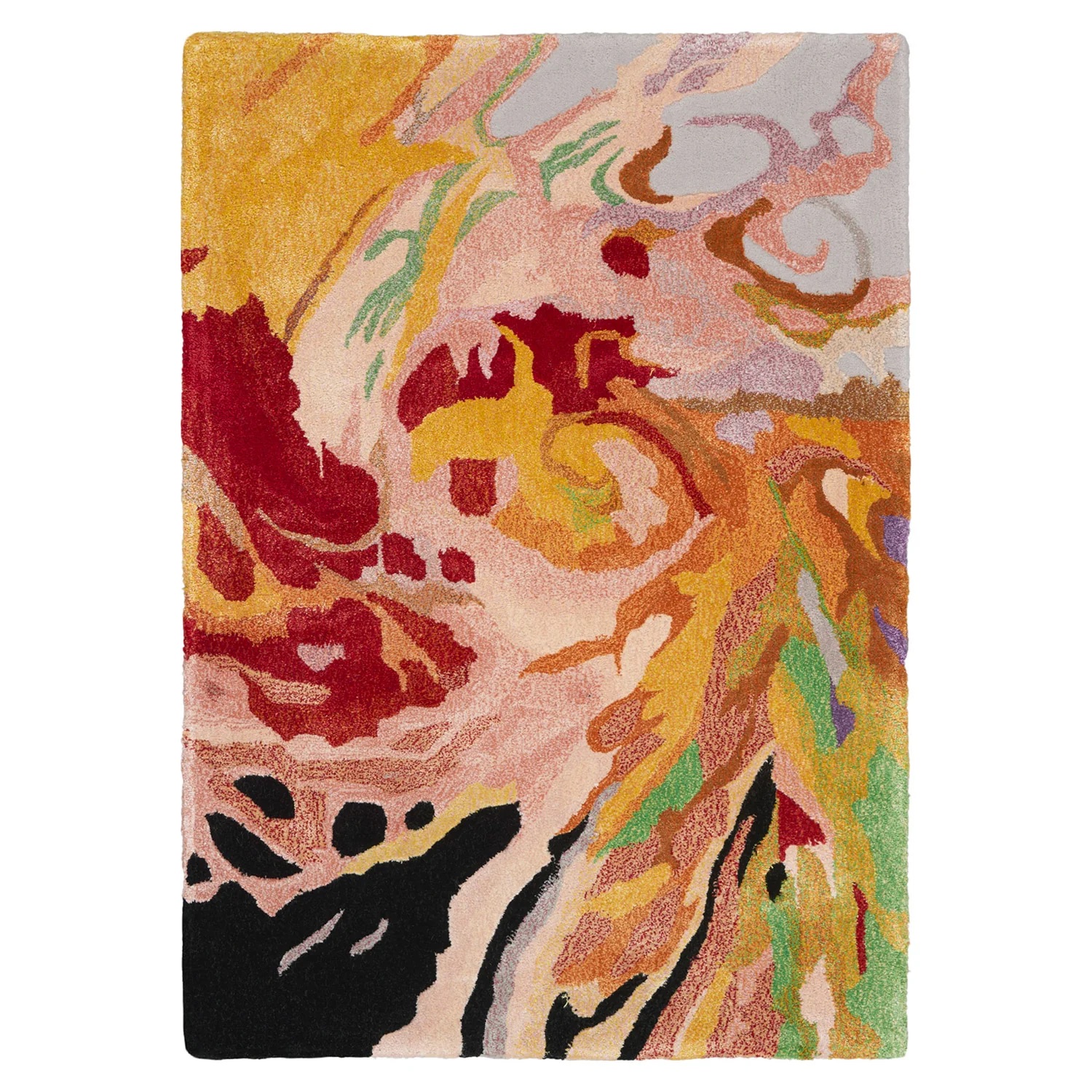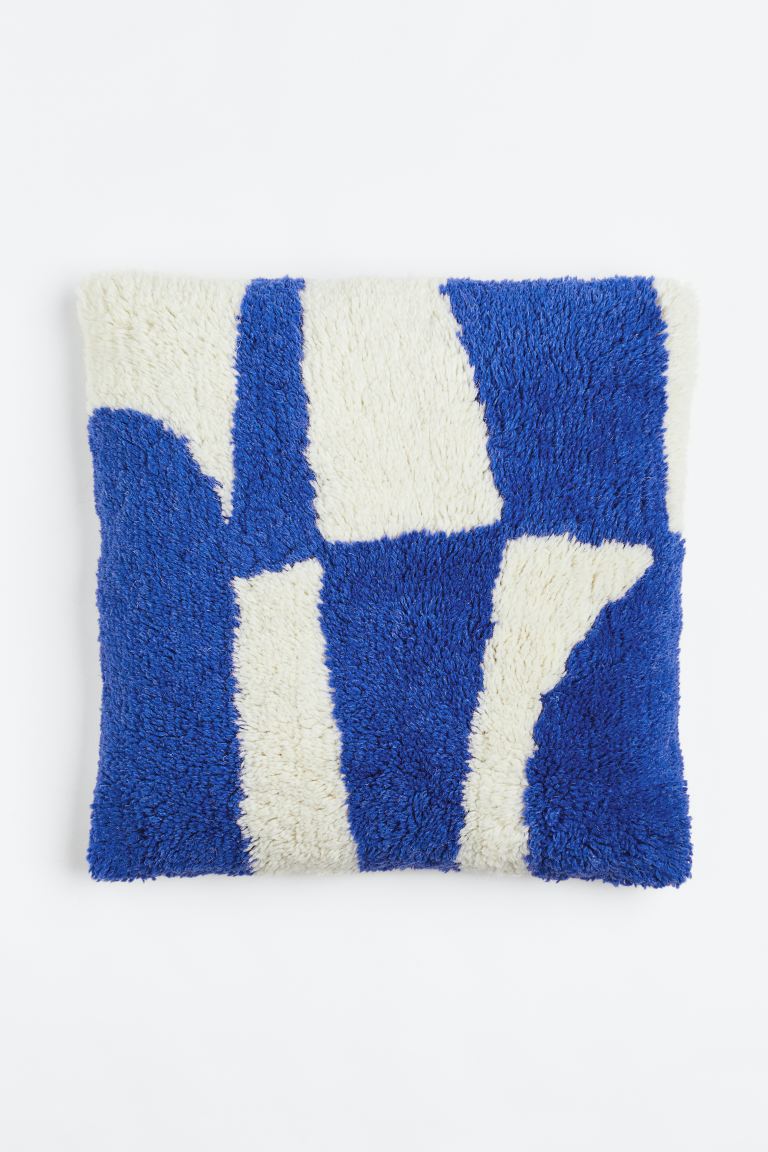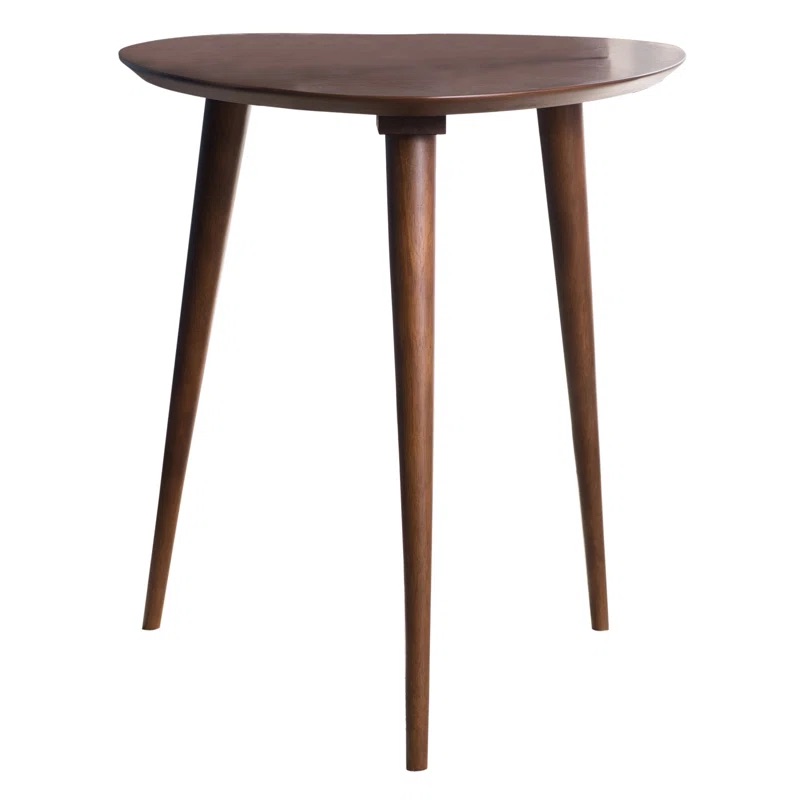Where to spend, and where to save, when re-designing a living room according to designers
Budgeting for your next makeover? Here's where to spend and save on your living room redesign (and still get a luxe look regardless)

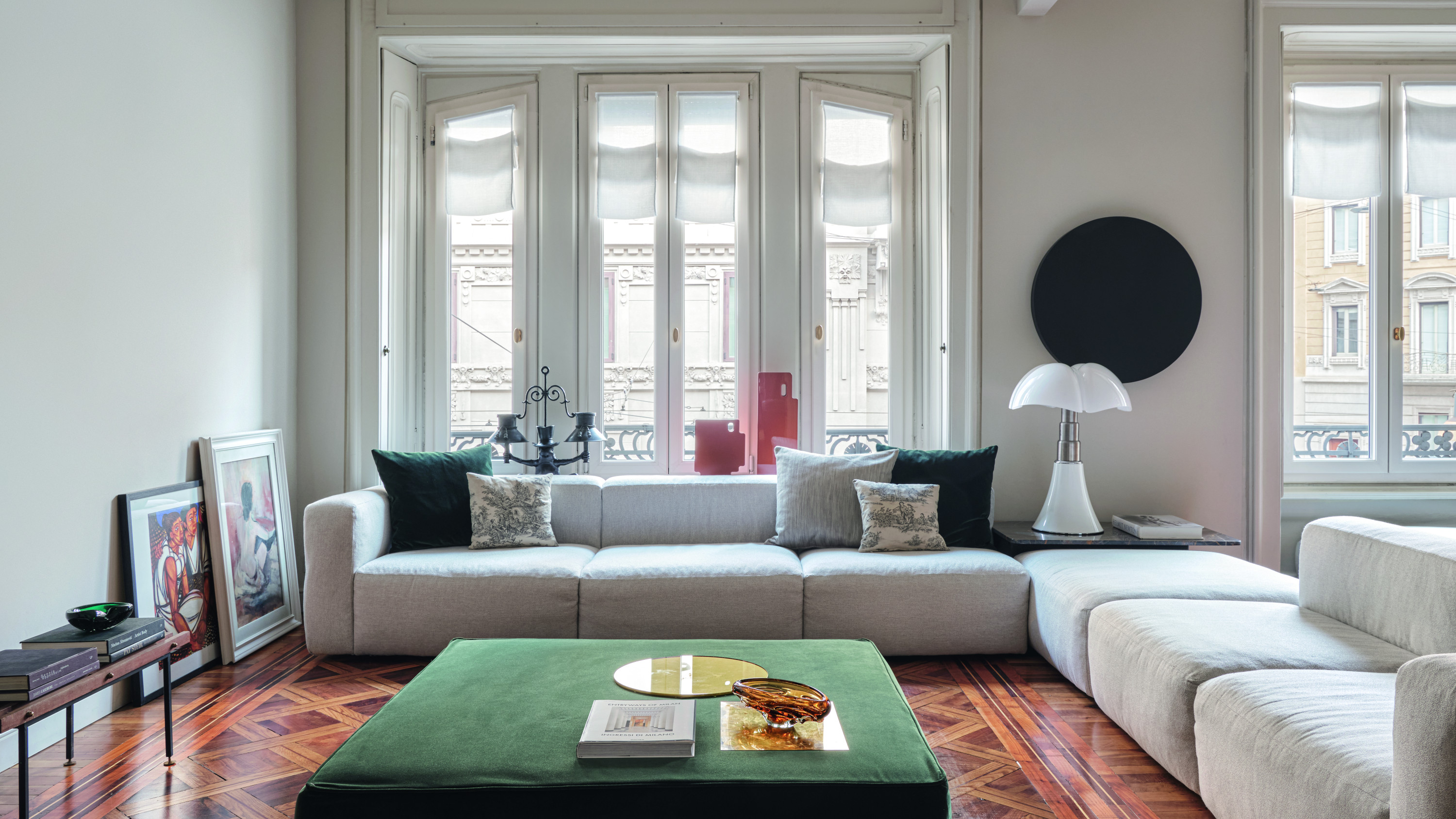
The Livingetc newsletters are your inside source for what’s shaping interiors now - and what’s next. Discover trend forecasts, smart style ideas, and curated shopping inspiration that brings design to life. Subscribe today and stay ahead of the curve.
You are now subscribed
Your newsletter sign-up was successful
As much as we might wish otherwise, most of us don’t have an unlimited budget when it comes to transforming our homes. Knowing where to spend and where to save when re-designing a living room, then, is crucial if you want to strike a balance between style and practicality.
Luckily, it’s a well known fact that not everything needs a lot of money thrown at it to create an effective living room scheme. Certain elements like accessories can offer low-cost ways to tap into trends – while spending a little extra on more expensive furniture, for example, can encourage you to choose pieces that you’ll love for longer, meaning it’s a more sustainable way to design a space.
So, where to spend and where to save? We spoke to interior designers to find out.
SPEND: Rugs
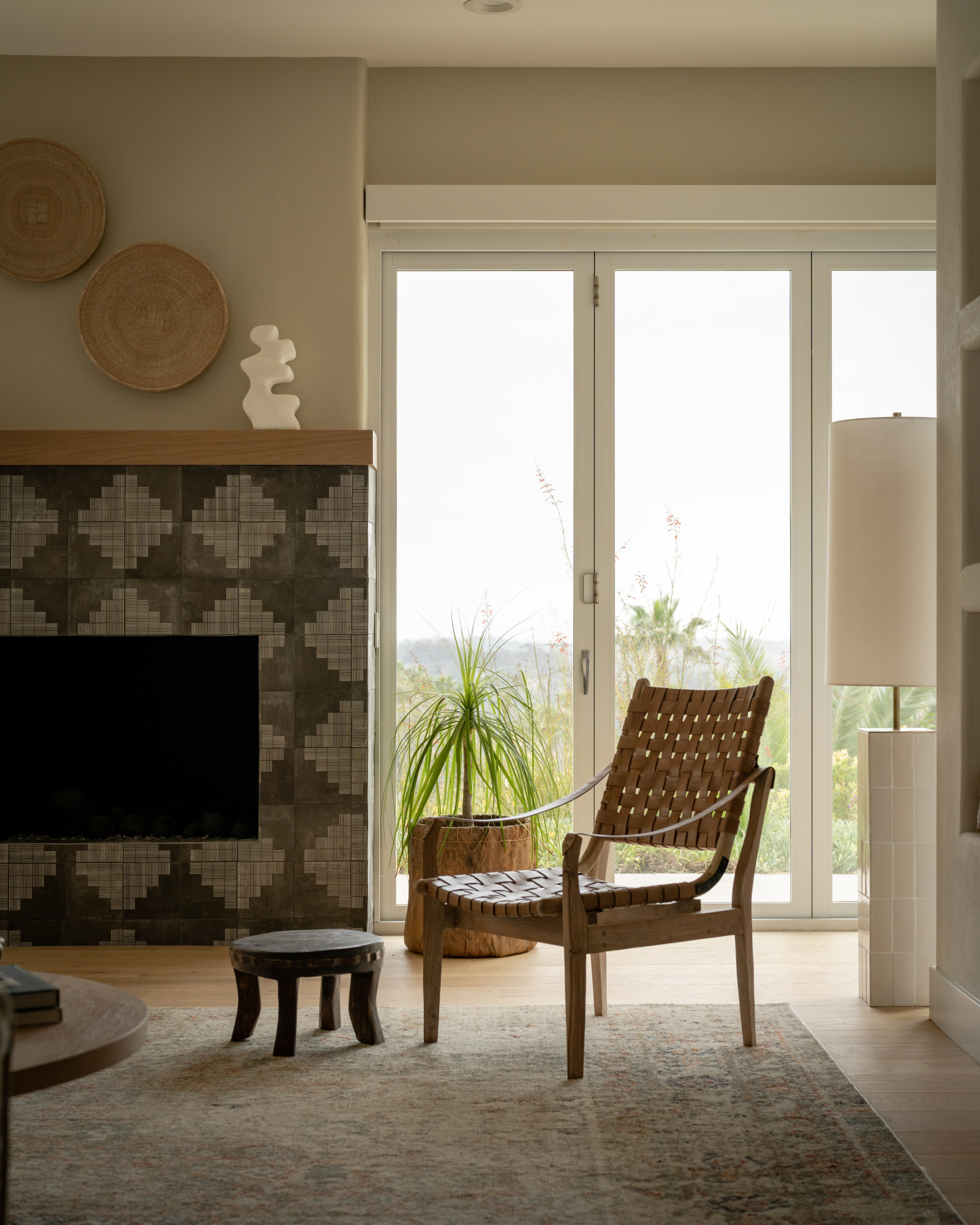
Rugs were one of the pieces designers were unanimous in recommending as splurge-worthy. ‘Rugs are an essential layer to grounding a room’s overall aesthetic,’ says Ashley Macuga of Collected Interiors, based in the Bay Area Peninsula. ‘They add color, texture, and pattern, and are used to tie different design elements of a room together. I also believe deeply in investing in a living room rug that is going to last. Some of the most beautiful antique rugs have been adorning homes for over 75 years, which is proof that when you purchase with longevity in mind, your rug might actually be the last thing standing in a room.’
‘While people are often scared to splurge on area rugs for fear of them being ruined, this is very far from the truth,’ agrees Tampa-based interior designer Lisa Gilmore. ‘A quality hand knotted wool area rug is the most durable option for your home, easiest to clean and even pass down for future generations!’
SPEND: Sofas and chairs
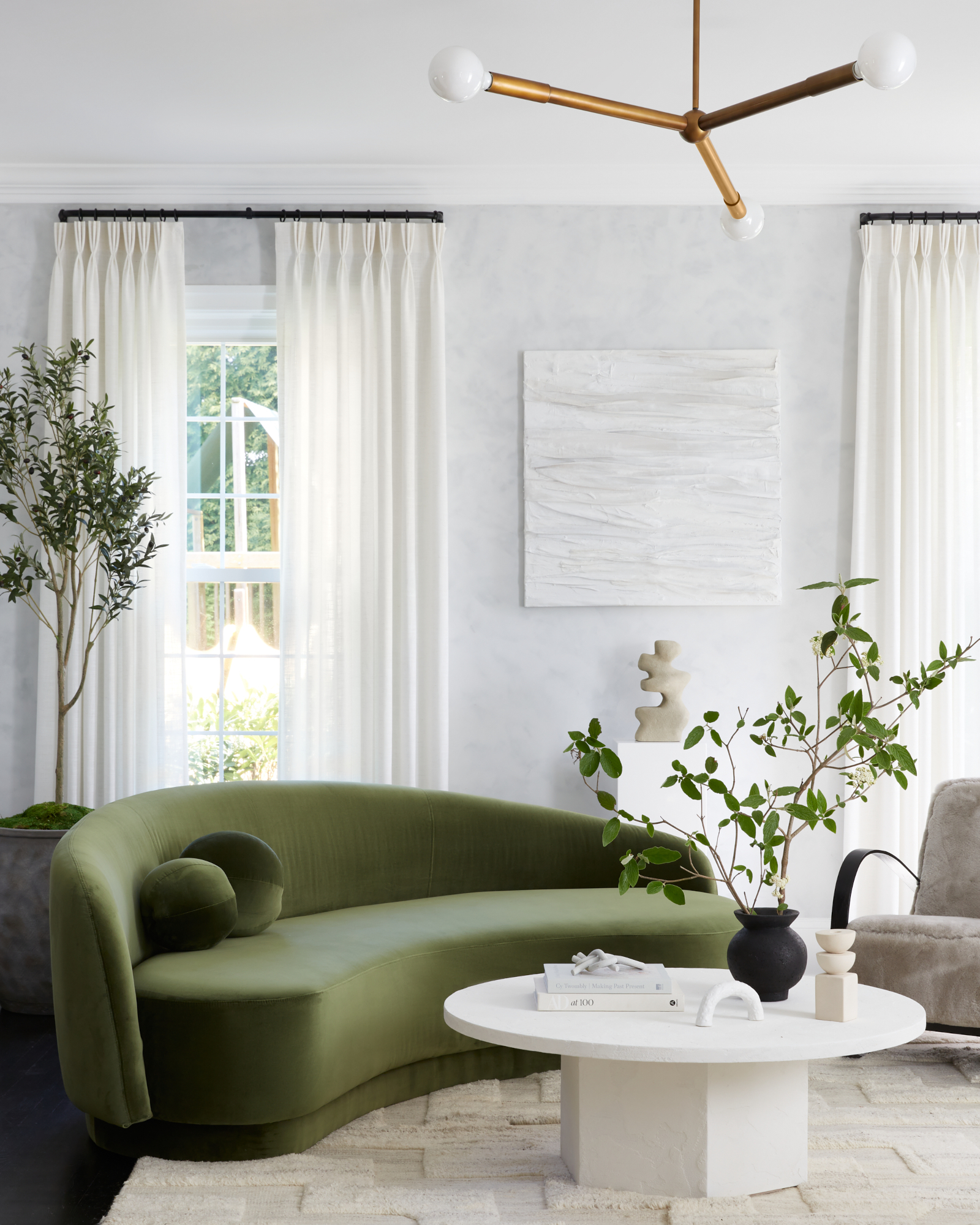
As the centerpiece of your room – and likely the object that endures the most wear and tear – investing in one of the best sofas is a smart decision. One tip from Ashley Macuga is to look for eight-way hand-tied construction – a process that ensures the springs won’t shift over time. ‘The goal is to invest in construction that evenly distributes weight evenly and reduces the sagging that can come with frames not produced with care,’ she says.
‘I always recommend investing in the items that see the most use, which in a living room is your upholstery,’ says Kathryn Murphy of Chicago and Oak Park-based Kathryn Murphy Interiors. ‘Get the best quality sofa you can and don’t worry about trends or colors. With a good-quality frame, you can reupholster when you need.’ Chairs can also be a good investment, if they’re something you’ll use a lot. ‘If you rarely sit on them, then you can save a little, but I find that when you are investing in reinventing a room, it will become a space you want to spend time in,’ Kathryn adds.
The Livingetc newsletters are your inside source for what’s shaping interiors now - and what’s next. Discover trend forecasts, smart style ideas, and curated shopping inspiration that brings design to life. Subscribe today and stay ahead of the curve.
‘Custom upholstery is worth the splurge,’ agrees Brad Ramsey, principal and founder of Nashville-based Brad Ramsey Interiors. ‘Being able to specify the dimensions, fabric, cushion fill and overall style of a piece of furniture makes it perfectly suited for the end user. And subtle tweaks to those selections individualizes your upholstery in a way that you don't get right off a furniture showroom floor.’
SAVE: Throw pillows (and other small decor)
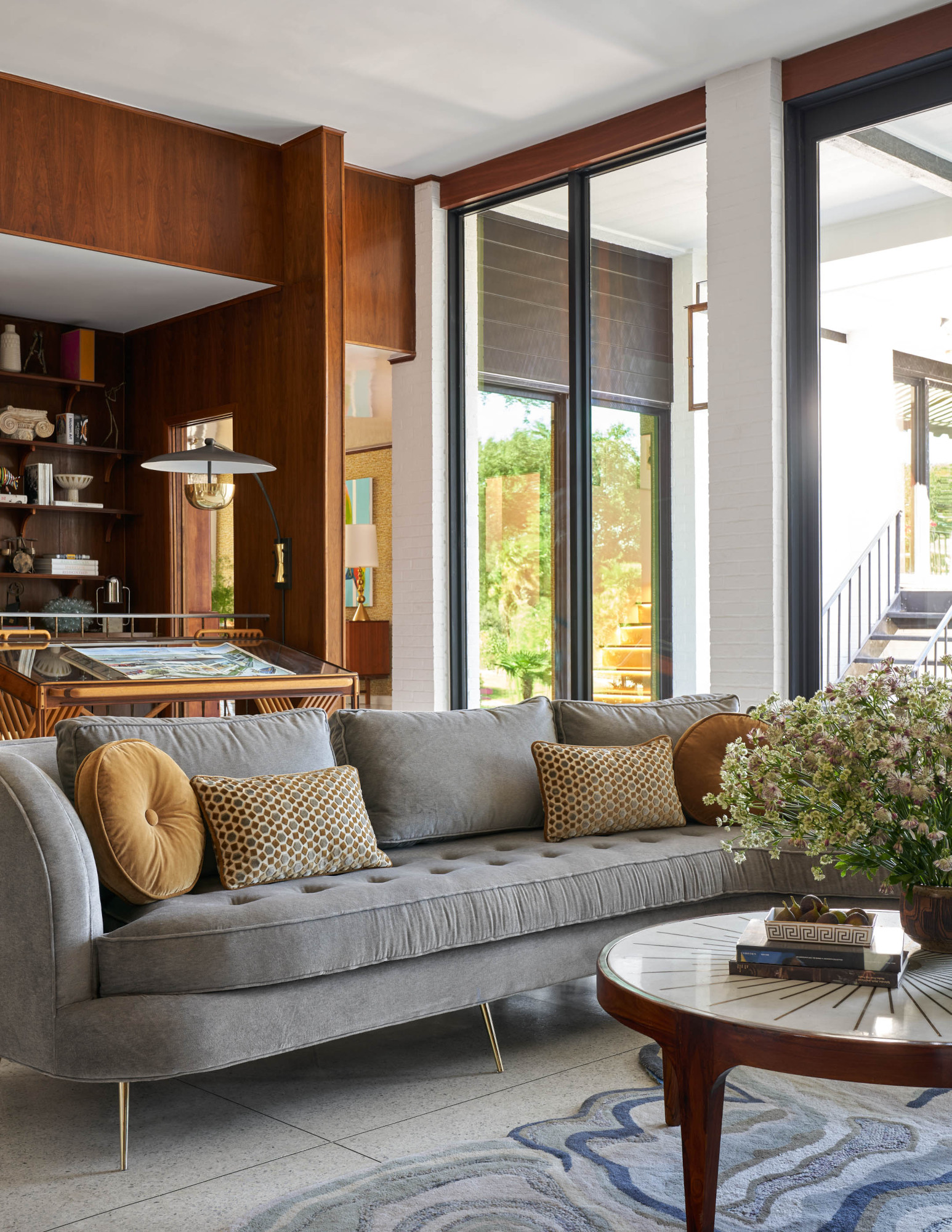
Happily, the smaller decor pieces you use to add personality to your space are the perfect place to make savings – meaning you can (sensibly) tap into trends you like as they come to the surface. ‘Styling is an absolutely essential part of pulling a final room together, but this is also a place where we will pull back on investments in order to deliver on a budget,’ says Ashley Macuga. ‘I love sourcing accessories from places like CB2 and H&M Home. Not only are they well-priced, but their decor delivers a ton of design credit. To add extra layers of character and depth, mix in vintage accessories from your local flea market, thrift, or antique store.’
‘Custom throw pillows can be quite pricey, and this is an area that I love to switch out if I'm wanting to mix things up,’ adds Lisa Gilmore. ‘Well priced throw pillows are not a huge investment piece and they don't have to stay in the room forever.’
SPEND: Wall treatments
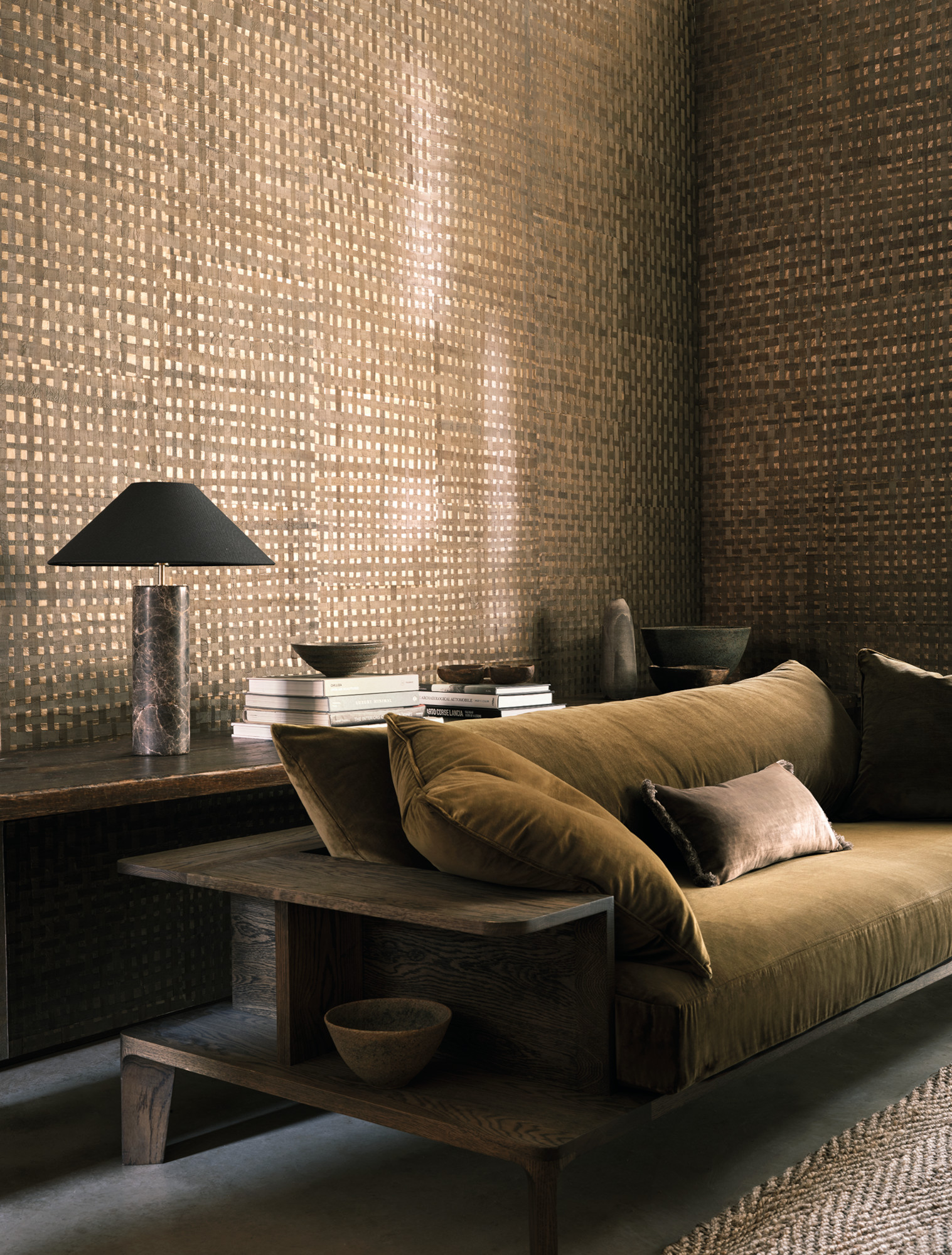
Particularly for wallcoverings, but also for paint, your walls finishes are not the place to cut costs. Paying a little more for a premium paint brand with a highly-pigmented product, or a textured living room wallpaper that instantly adds warmth, can take your space to the next level.
After all, says Melissa Van Zee, Los Angeles-based interior designer and owner of Long Beach's Van Zee Design Interiors: 'Living rooms are the gems of your home. Splurge on wall treatments like bold wallpaper, mural masterpieces (yes, even on the ceiling!), or paneling in unexpected shades like lavender or chartreuse with a glossy finish.’
SPEND: Window treatments
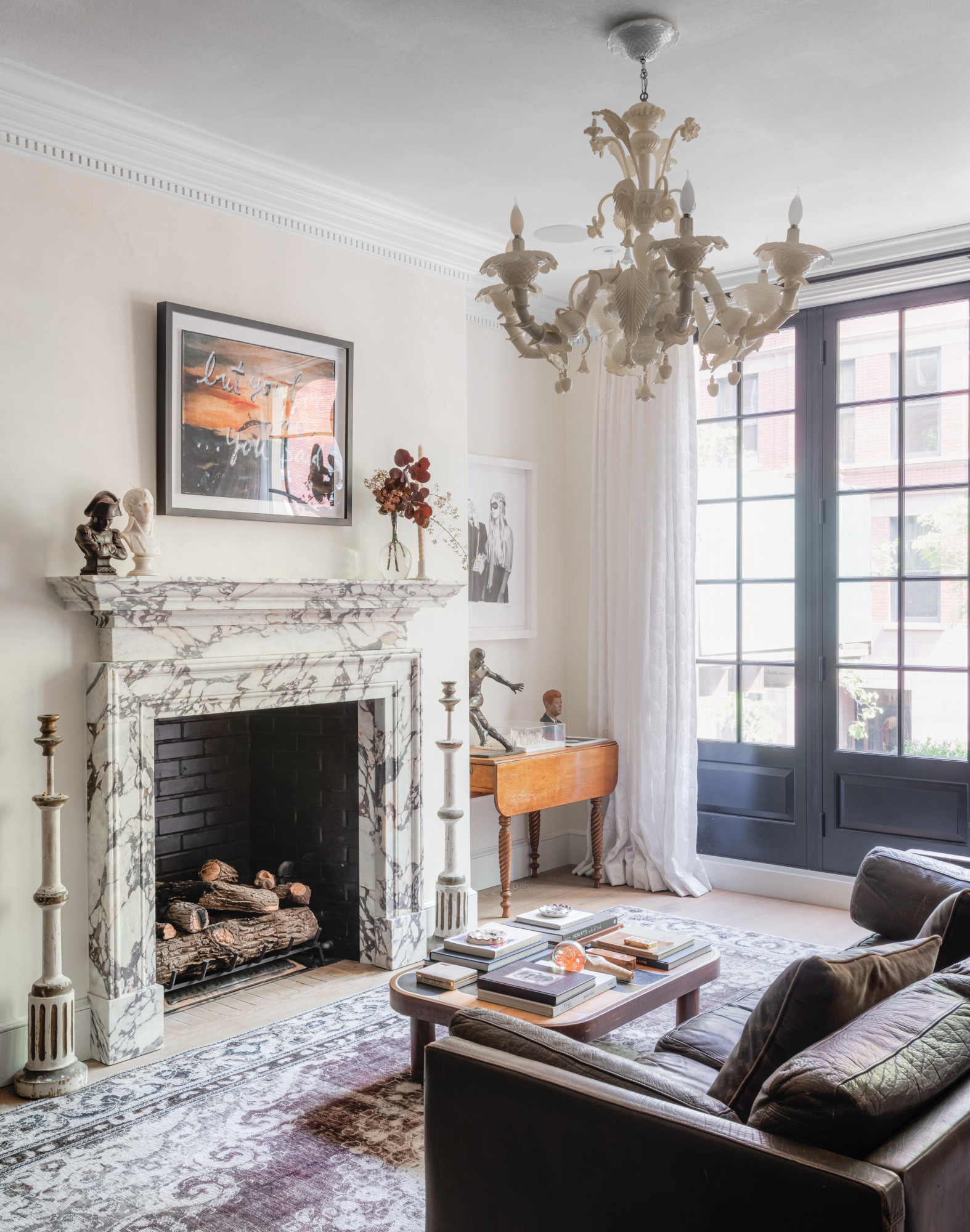
Another place it’s often wise to budget some money for is window treatments – in most part because custom drapery can deliver results that many off-the-shelf versions simply can’t. ‘Custom drapery is equivalent to a well tailored dress but for your home,’ says Lisa Gilmore. ‘They add visual volume to your space and add such an amazing layer to your home.’
However, if you are on a tight budget, there is a caveat. ‘Window treatments can be one of the most expensive layers added to a room, and we try to protect this line item in our budgets because of the impact it can add to a space,’ says Ashley Macuga. ‘But when budgets get tight unexpectedly or a client isn’t sure how long they will be living in their space, there are some beautiful ready-made options available now that can mimic the investment of custom options. The key, in our opinion, is to get the hardware and pleat right. Consider using a double or triple-tailored pleat with French returns for the hardware: this combination instantly makes the drape look more expensive when installed.’
SAVE: Side tables
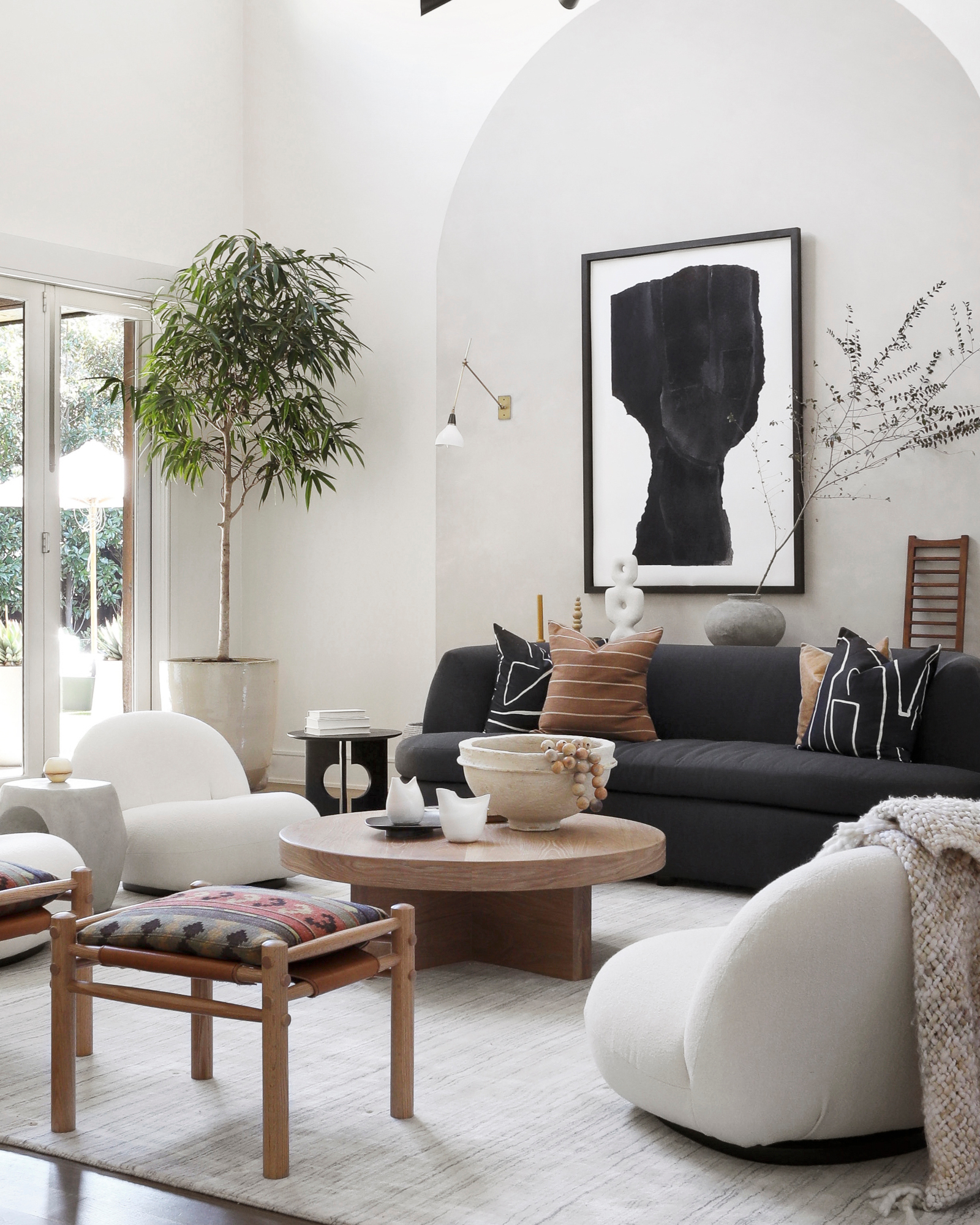
Designers were somewhat split over how much budget to allocate to living room furniture that’s not the sofa. The general consensus is that for side or accent tables, you can generally get away with reigning back on the spending because, as Kathryn Murphy says, ‘they generally see less regular wear and tear.’ Many high street options offer the sculptural shapes and soothing curves we’re coveting right now, so you can achieve a high-end look on a budget.
The one exception is coffee tables. Generally exposed to a little more wear – being a catch-all for rifled-through books and magazines, candles, mugs and the occasional pair of feet – they’re worth a little more investment in most cases. ‘Your coffee table should be the next priority [after a sofa] for investing in a well-made, quality piece, as it serves as the focal point of your living space,’ says Charity Buchika, East Coast-based designer and founder of Teaselwood Design.
SPEND: Art
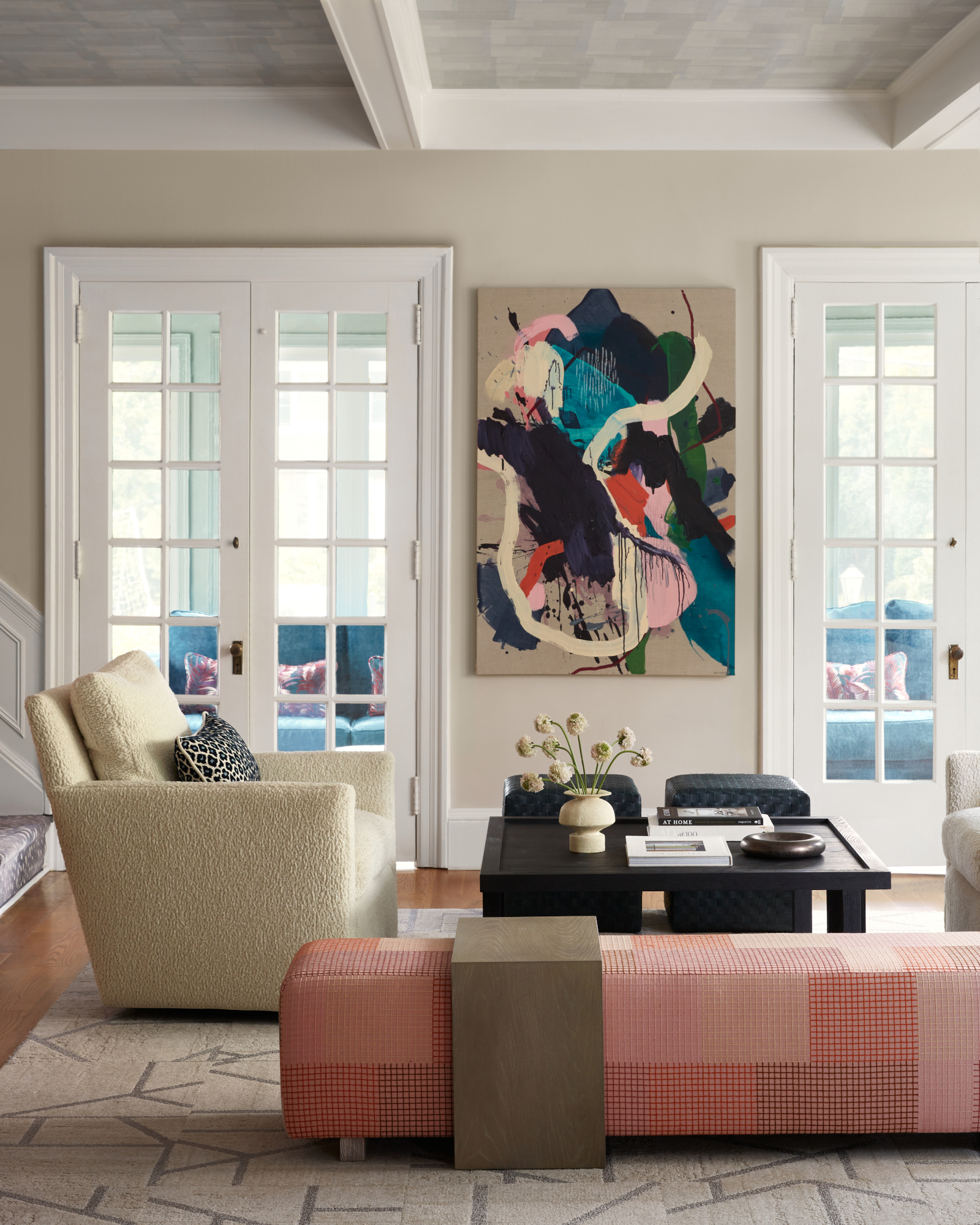
With so many incredible artists out there – as well as plenty of treasures in antique stores – investing a little in some of your favorites will only improve your living room, as it will be filled with pieces you love. ‘Investing in art for me means searching for pieces I want to see over and over – investing time as much as money,’ says Kathryn Murphy.
However, original living room art isn’t easy to budget for for everyone (especially if you’re already spending a little more on some of the other items in this article) – so don’t feel guilty if you have to save here. ‘I am a huge advocate for supporting independent artists whenever possible, but the reality is sometimes we just don't have the personal budget for that investment,’ says Lisa Gilmore. ‘I love to go to vintage shops and bigger box stores when the art budget is small: you can really add color to the space this way until you have more room in your budget.’
SPEND OR SAVE: Lighting
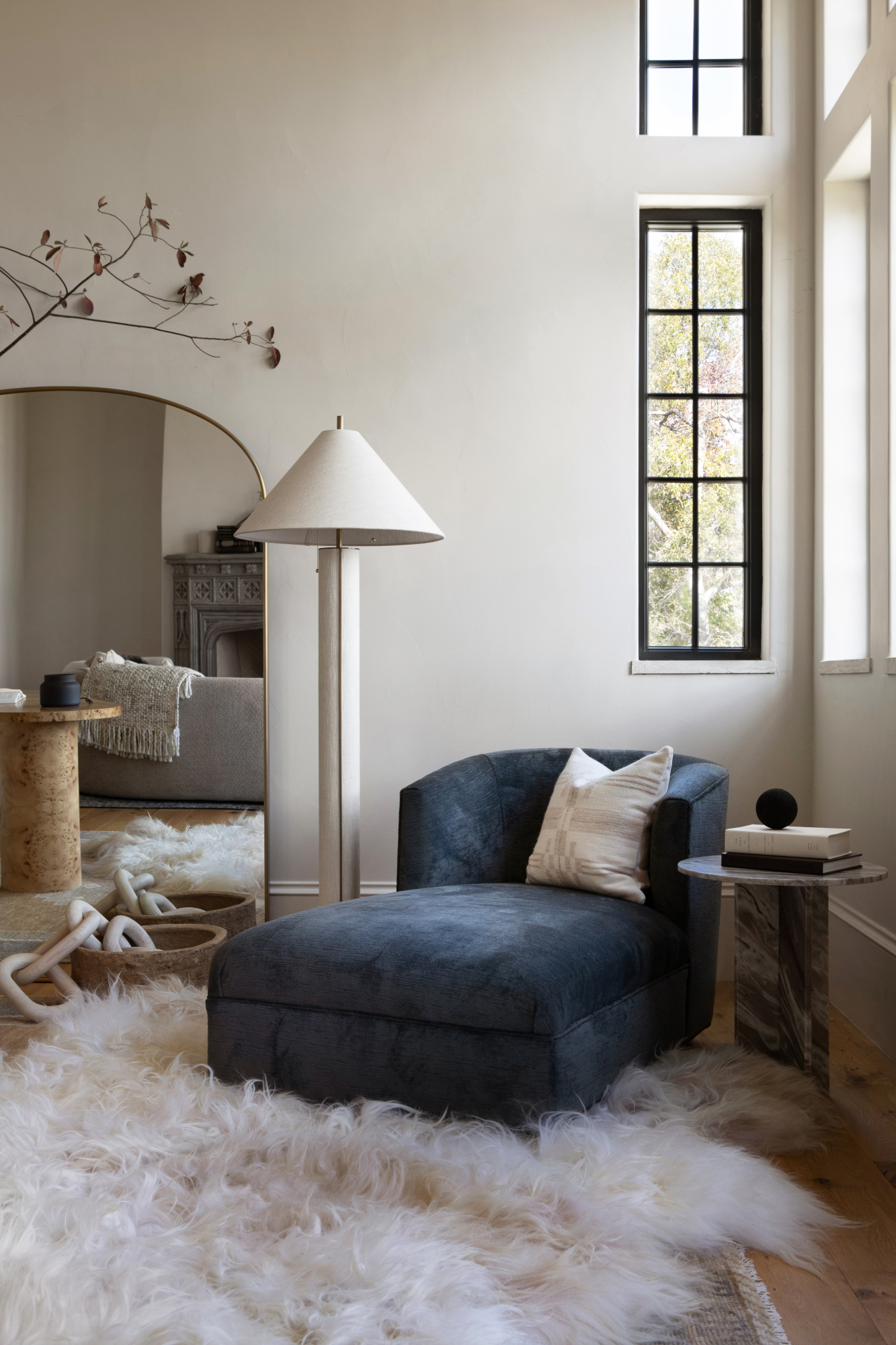
Designers were split over whether living room lighting is a good investment, or a way to cut back a little to make way for premium pieces elsewhere. It’s certainly true that the things you touch everyday, like light switches, deserve a little more money – they’ll be more hardwearing, and look (and feel) far more premium. But the light fittings themselves are up for debate.
Jasmine Crockett, Atlanta-based interior designer and founder of JoyMeetsHome, recommends investing in good lighting fixtures – because, she explains, ‘they can set the mood and enhance the room's aesthetics.’ For Lisa Gilmore, however, you can create a luxe look with less. ‘You can get a bang for your buck here,’ she says. ‘Just make sure to pay attention to scale – you don't want things to be too small or too large.’
A good rule of thumb, we think, is to spend a little less on ceiling lights and a little more on lamps you’re going to be looking at much more closely. And if you’re really struggling for budget, remember that you can upgrade shades with beautiful textiles from your favorite fabric houses in the future.

Ellen is deputy editor of Livingetc magazine. She works with our fabulous art and production teams to publish the monthly print title, which features the most inspiring homes around the globe, interviews with leading designers, reporting on the hottest trends, and shopping edits of the best new pieces to refresh your space. Before Livingetc she was deputy editor at Real Homes, and has also written for titles including Homes & Gardens and Gardeningetc. Being surrounded by so much inspiration makes it tricky to decide what to do first in her own flat – a pretty nice problem to have, really. In her spare time, Ellen can be found pottering around in her balcony garden, reading her way through her overstacked bookshelf or planning her next holiday.
